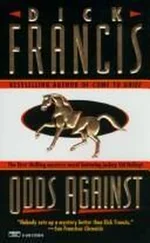“And a year from now?” he said.
“Future Days signs its one hundredth client? Two hundredth?”
The bus passed over Memorial Bridge. A sign showing a church steeple in front of brown mountains announced LEAVING NEW HAMPSHIRE: LIVE FREE OR DIE. They passed beneath a sad, crooked pine tree, its crown bent like the head of a man whose neck has been snapped. Another sign said WELCOME TO MAINE: VACATIONLAND.
The traffic slowed to a stop. A hundred yards distant, the interstate passed over what had been, at normal water levels, a marina. The flood had receded, but the boats were stuck on the shore, in trees. A motorboat sat jackknifed across the shoulder, blocking two lanes.
And then he couldn’t think any longer — not a single second longer —about Jane or her business plan for Future Days or the horrors they had left behind. For up ahead, on the horizon, loomed Elsa Bruner. And if she were hurtling ever farther into outer space — past constellations and galaxies, pulled by some dark energy, flying faster and faster to the outer reaches of the universe — then she was also becoming larger, vaster, boundless even, drawing into herself all his fears but reflecting nothing.
* * *
Portland, though structurally sound, was still damp; the streets shone like black ice. The government booked them into the Eastland Park, a towering 1930s-era redbrick hotel with a grand lobby lit by dim electric candlesticks. The bellhops wore pillbox caps and blazers with brass buttons. Nobody appeared to be staying there besides the bussed-in flood refugees, whose numbers had depleted with every stop after Lowell, Massachusetts. Even Portlanders had fled the storm, headed farther north, into the woods — to Aroostook County, Quebec, Prince Edward Island.
The double room granted to Jane and Mitchell was trying badly to be something it was not. There was a divan upholstered in apricot plush, a crimson-and-yellow-checkered marble table, an oval mirror squatting on curved cane legs. The sense of disorientation was extreme. It wasn’t only that they were in an unfamiliar place; it was another era, an alternate universe. There was a television, but it didn’t work. They had to lie in separate beds, as in a black-and-white movie. Perhaps it was better this way. No missed signals, no ambiguity. Safe.
After the lights went out, just as Mitchell was falling asleep, Jane rose. She stepped over to his bed and lifted his blanket.
“Hi,” she said.
“Hi,” he said.
3.
This time, to his surprise, he actually got a ringtone. Then the machine answered. Billy’s voice had a distant, befuddled quality, as if he had been awakened in the middle of a dream.
“I’m afraid … I’m sorry. This is Billy, from Camp Ticonderoga. I’m afraid that we are not able to offer positions — bunks, or, I mean, shelter and food or … water to any more refugees from Tammy. I’m sorry. It’s just that we’re out of space. We ask you please. We have heard that other camps have been set up in Augusta and Bangor and the north country. But we’re overwhelmed. I–I’m sorry.”
An automated voice interrupted to tell Mitchell he could not leave a message because the mailbox was full.
The bus departed Portland at eight in the morning, destination Montreal. It was suddenly full summer again, indigo sky, the windows hot to the touch and fogging from the refrigerated air. Mitchell and Jane were the only passengers to debark at Augusta State Airport, which doubled as the Augusta bus station. There were no airplanes in sight. The terminal was closed. The only vehicle on the runway was a brown station wagon. Its side was crosshatched with scrape marks.
The door to the station wagon opened and a freckled, large-limbed woman clumped out. She wore a baseball hat that struggled to stay perched above her cloud — a feathery, cumulonimbus cloud — of bottle-brown hair. Her face was abnormally tall and creased, a billowing sail of a face. Across her T-shirt was written, in shaky letters, GENUIS.
“You need a ride?”
“Are you a livery driver?” asked Jane.
“I’m Judy. From two ten Winthrop Street.” She pointed at a row of houses several hundred yards away. “But I’m afraid that will have to do.”
“Can you take us to Starling?”
“Let me guess: Camp Ticonderoga.”
“You know it?”
She chuckled, shaking her head. “I’ve been running people the last two days. Desperate people.”
Mitchell pretended not to notice Jane’s death stare.
“I can take you as far as Kents Hill,” said Judy. “That’s under two miles from the camp. Then you’ll be on your own. I’m not going any deeper.”
What else could they do? They got into the station wagon. It had a warm smell, burnt wood and burnt cigarettes. The interior paneling was simulated wood grain. Judy removed a copy of that morning’s Kennebec Journal from the passenger seat to make room for Mitchell. He caught the headline: TAMMY WAVE CRASHES ON CENTRAL MAINE. There was a photograph of flood refugees lined up in a tent city that had been erected in downtown Augusta by the local chapter of the Elks Lodge.
“Going rate’s fifty bucks,” said Judy. “Can you pull it?”
“Yes,” said Mitchell, glancing at his Go Bag. After paying for snacks at the vending machine in the Eastland Park lobby, his cash supply was down to $51,996.50. “I can pull it.”
Judy sped off the runway and turned onto Winthrop. They passed graveyards.
“Why won’t you go any farther than Kents Hill?” asked Jane.
Judy caught Jane’s eyes in the rearview mirror. “You never know what happens when you throw a bunch of city people into the woods. They can lose their bearing.” Judy was withholding information — there was a dark suggestion on her face as she turned back to the road. Mitchell was relieved that Jane, in the backseat, didn’t catch it. Otherwise she would have asked Judy to elaborate. And that would have only created more problems. They had already escaped from Hell. It was difficult to imagine that whatever awaited them in Starling could compare with the floating children’s books, cats, corpses. Besides, if Elsa was in some sort of danger, he owed it — to himself, if not to her — to help. And what secrets would be revealed in her letter to him?
“I have nothing against the hippies,” Judy continued. “Heck, I’ll admit it, I even went in eighty-eight to see the Grateful Dead play at Oxford Plains Speedway. But there’s a hundred miles between talking about the land and living on it.”
Augusta gave way to apple orchards and blueberry fields, which yielded to forest. After twenty minutes they reached a fork in the road. Judy stopped the car.
“You have second thoughts,” she said, “call me.”
She tore off the front page of the Kennebec Journal and scrawled her phone number.
“I’ll take that.” Jane reached over the seat to snatch the paper from Judy’s fingers. She folded it carefully into her wallet. When she looked up, Mitchell was staring at her.
“I just don’t want it to get lost,” said Jane. She hiccuped.
Judy drove right at the fork. Mitchell and Jane went left onto a dirt road, where they were greeted by a porcupine.
* * *
Jane gasped when she saw it, the clumsy black beast with little swords protruding from its swaying haunch.
“After all we’ve been through,” said Mitchell, “this scares you?”
She started laughing. Then, in the space of another hiccup, she was crying.
“Jane?”
She looked down, her hand over her eyes, and the sob passed. After a brisk shake of her head she looked up. Her smile was bright, if insincere. She wiped her eyes.
“Sorry.” She cleared her throat. “That happens sometimes.”
Читать дальше












